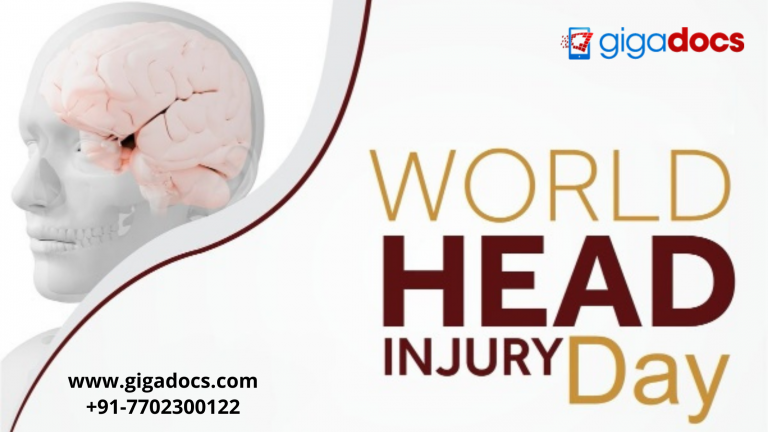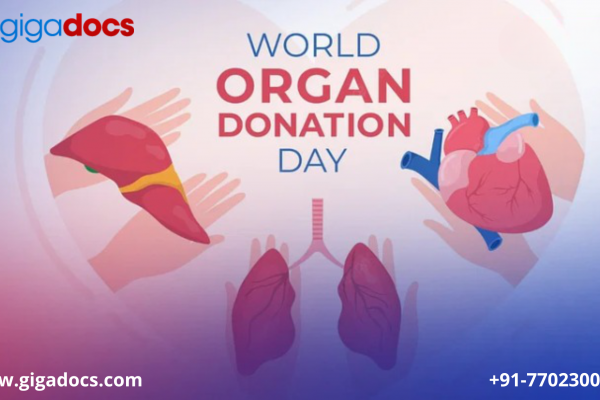An injury to the brain, skull, or scalp, ranging from a minor bump or bruise, is classified as a head injury. Common ones include skull fractures, scalp wounds, and concussions. These injuries can be closed or open. A closed head injury is defined as any injury which doesn’t fracture the skull is termed a closed head injury while an open head injury goes through the skull and enters the brain.
It can be challenging to determine the severity of a head injury simply by looking at it, while minor head injuries bleed profusely, while others do not bleed at all. However, all head injuries must be taken seriously and consulted with a specialist like a neurosurgeon.
Causes of Head Injury
Shaking-induced head injuries are most common in infants and small children when there is violent shaking. The most common cause of injury among the elders is falls, followed by being struck by or against an object.
The following includes the common head injury causes-
- Accidents (which include motor, vehicle-pedestrian accidents)
- Falls
- Domestic violence
- Sports-related injuries
Types of Head Injuries
Hematoma
A blood clot that forms outside of the blood vessels is called Hematoma. While a hematoma in the brain can be extremely dangerous, causing pressure to build up inside your skull. You may even lose consciousness or, worst, suffer permanent brain damage.
Hemorrhage
A hemorrhage is the uncontrolled bleeding of the brain. While a subarachnoid hemorrhage is the bleeding that exists around the brain, an intracerebral hemorrhage is the bleeding that exists within the brain tissue. Headaches and vomiting are common symptoms of hemorrhages. The amount of bleeding determines the severity of intracerebral hemorrhages; however, any amount of blood can cause pressure to build up over time.
Concussion
A concussion occurs when the head injury is severe, which may be caused by the brain colliding with the hard walls of the skull or by sudden acceleration and deceleration forces. Though in most cases, the loss of function caused by a concussion is only temporary, on the other hand, repeated concussions can cause permanent damage.
Edema
Edema or swelling can result from any brain injury where the swelling of the surrounding tissues is common. Edema can become serious when it happens in the brain, as one cannot stretch their skull to accommodate the swelling. That causes a pressure buildup in your brain, leading it to press against your skull.
Fracture of the Skull
Do you know? Our skull does not have bone marrow and also its very tough to break? However, a fractured skull can’t absorb the force of a blow; it is more likely that any forceful injury may also damage your brain.
Symptoms of a Head Injury
Not all head injuries, however, result in bleeding. It must be seen that many signs and symptoms of a severe brain injury do not appear immediately. That explains why you should always watch your symptoms for several days after a head injury. Common head injury symptoms include:
- Headache
- Vomiting
- Balance or coordination problems
- Serious disorientation
- Lightheadedness
- A spinning sensation
- Loss of consciousness
- Seizures
- Abnormal eye movements
- A loss of muscle control
- Memory loss
- Mild confusion
- Nausea
| World Head Injury Awareness Day More than 5% of people worldwide suffer a severe brain injury by accident or accidentally bumping their heads every year. March 20th is observed as World Head Injury Awareness Day. This day examines the number of people who suffer from head injuries, both minor and severe. The goal of this day is to remind us how being conscious can help us avoid brain injuries and accidents. |
Complications of Head Injuries
Our brain, the most critical part of our central nervous system, can be damaged by a head injury, hurting one’s health and well-being. Even a minor incident can result in long-term damage if proper care and treatment are not provided promptly.
A head injury can even result in various damages, ranging from memory loss to severe paralysis and even death. Several victims can be partially or wholly paralyzed by not wearing their helmets on the day of the accident.
Prevention of Head Injuries
We all know that a few things can protect our heads from an injury, like wearing a helmet and a seat belt in a car. Other preventive tips include-
- Provide adequate lighting on the stairs, especially for the elderly or people with low vision.
- When riding a bicycle, motorcycle, or scooter, always wear a helmet.
- Use the handrails to support yourself on the stairs.
- Don’t put obstacles like pieces of furniture in the pathway.
- Use a child safety seat appropriate for your child.
- Never drive while intoxicated or under the influence of drugs or alcohol.
Head Injury Treatment and Medical Attention with Gigadocs
If you experience loss of consciousness, confusion, or disorientation, you should always seek medical help right away.
Summing up, head injuries are serious and should not be taken lightly. If you believe you have head injury symptoms, contact a specialist on Gigadocs. Please note, head injuries should be taken seriously, and we recommend you to meet a specialist in person for a consultation at the earliest. They will examine you for signs of trauma like bruising and swelling and may recommend a neurological examination if necessary.
Download the Gigadocs App to schedule an appointment with a neurosurgeon on Gigadocs-
- IOS App – apple.co/2W2iG4V
- Android App – bit.ly/33AQoRC
To know more and schedule a Virtual Consultation demo, Email @ info@gigadocs.com




